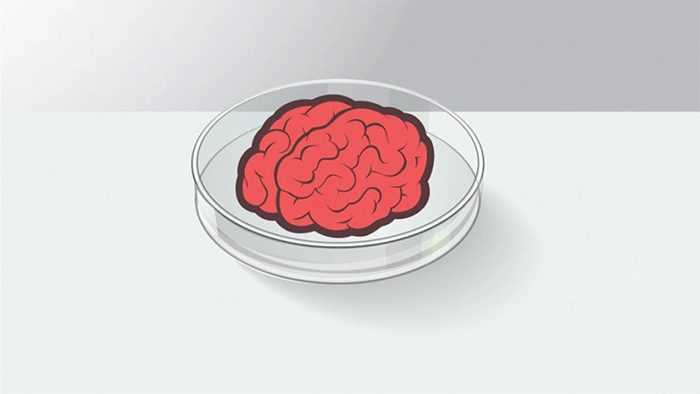Researchers have successfully nurtured a brain cell assembly, allowing it to play Pong—one of humanity’s first video games, released in the 1970s.
In a report published in the journal Neuron, Professor Brett Kagan asserted that the research team has created the first “cognitive” brain originating from a laboratory. While some experts are intrigued by this new achievement, they believe that Kagan has overstated the case by claiming that the artificial brain possesses consciousness.
Professor Brett Kagan responded: “We could not find a more accurate term to describe the new device. It can receive information from an external source, process it, and react in real-time.”
These miniature brains were first reported in 2013, aimed at studying brain shrinkage syndrome, which causes abnormal smallness in the brains of newborns. For nearly a decade, artificial brains have been used in research on brain development.
However, this is the first time an artificial brain has interacted with an external environment; specifically, this study enabled the brain to play Pong—a simple game in which players control a surface to bounce a ball back and forth between two halves of the screen.
According to the research team, they carried out two main steps:
- Nurtured a brain cell assembly from stem cells derived from white mouse embryos, with the number of stem cells reaching up to 800,000.
- Connected the miniature brain to the Pong video game through a series of electrodes to determine which half of the screen the ball was on and how far the “paddle” was.
In response to the video game, the cells generated their own electrical activities. As the game progressed, the artificial brain used less energy; in other words, the brain was gradually optimizing its capabilities. However, when the ball disappeared and reappeared at a random position on the screen, the artificial brain consumed more energy to cope with the unexpected situation.
Within just 5 minutes, the brain learned how to play Pong. Although the paddle sometimes missed the ball, the success rate of the hits was high enough—greater than random chance—for researchers to affirm that the artificial brain was playing on its own.

Illustration of the brain cultivated in a laboratory environment – (Image from the Internet).
Scientists emphasize that although it is active, the artificial brain cannot recognize that it is playing a video game, unlike how our brains perceive reality.
Professor Kagan hopes that this new technology could be applied in experiments to treat brain diseases. “When looking at living tissues in a Petri dish, one cannot tell if the brain is functioning. [Testing] brain function opens up many other fields of research that can be explored in various ways.”
In the next step, Professor Kagan intends to test the effects of alcohol on the artificial brain’s ability to play Pong. If it reacts similarly to a normal brain, scientists may conclude that the artificial brain could serve as an excellent alternative research subject for human brains.
However, Professor Kagan’s definition of “cognitive” may differ from the dictionary definition, which suggests that “cognition” is the ability to have emotions and sensations. Professor Dean Burnett from Cardiff University’s School of Psychology believes that the brain system in this new research should be referred to as a “thinking system” instead.
“There is a flow of information passing through, and it is clear that it has been processed to create a difference, so the incoming data is an activity of ‘thinking’ understood in its most basic sense,” Professor Burnett noted.
The artificial brain will become even more complex in the future, but according to Professor Kagan, the research team will do everything possible to ensure that the brain cannot reach the level of “consciousness” that we possess, in order to avoid facing potential ethical issues.
“We must view this new technology as akin to the emerging computer industry, when transistors were still crude and inefficient prototypes—but after many years of research, they produced technological marvels around the world,” Kagan said.


















































